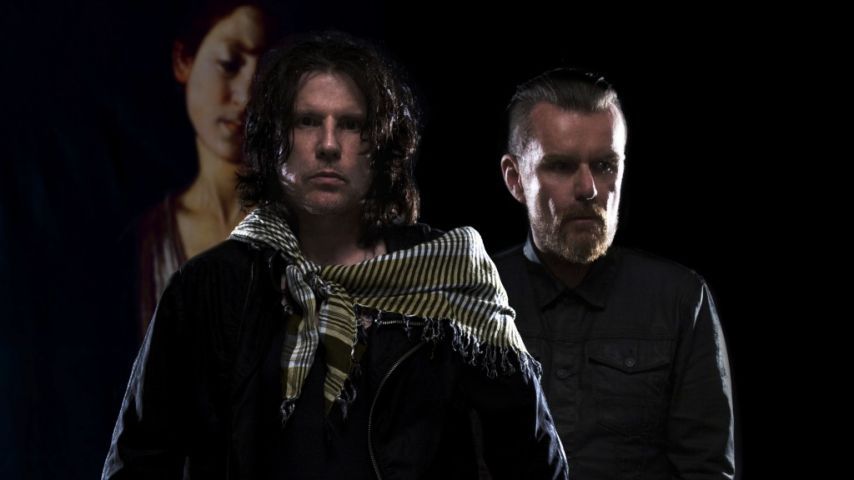 With nine albums, countless tours, three break-ups, three reunions, and twenty six line-up changes, The Cult have managed to flirt with relevance for over thirty years with various degrees of success.
With nine albums, countless tours, three break-ups, three reunions, and twenty six line-up changes, The Cult have managed to flirt with relevance for over thirty years with various degrees of success.
With the right amount of mystery and attitude to keep The Cult from fading into complete obscurity, they still lacked the mainstream attention to set them apart from other bands in their respective genres. Rock, goth, new-wave, post-punk, alternative, you name the rock n roll sub-genre and The Cult have been part of it or at least jumbled up in there somehow. Despite these ups and downs, they are still making music without compromising their core standard.
With their tenth studio album Hidden City, the band doesn’t go out of their way to reinvent the wheel, cater to mainstream trends for the sake of popularity, or try to rekindle previous magic for the sake of nostalgia. Instead, the album is a direct continuation and evolution of their last album, 2012’s Choice of Weapon. The same riff heavy rock n roll, with a thin layer of gothic mysticism they have been known for, but now with an extra dose of brooding atmosphere.

Upon my first listen to Hidden City, the one thing that stood out the most is this dark atmosphere the album had going for it. The opening track “Dark Energy” delivers the best energy The Cult has utilized since their first break-up in 1995, but now with a certain nuance that signifies the rest of the album will be a darker affair. The trend continues with “No Love Lost” and “Dance The Night” but ultimately wears it’s welcome out by the time the fourth track “In Blood” is over.
It’s obvious these guys are older and have less to prove in the rock scene. Despite sounding more like Glenn Danzig than Jim Morrison these days, Ian Astbury’s voice has aged well and works with the moody direction they have taken up. Even more so with the mid-tempo tracks, when he is not forced to shout. The lower register only fails on the tracks “GOAT” and “Heathen”. Those two songs would have been straight fire if recorded in 1990, but the same could be said for just about any song from any aging rock band who are releasing music in 2016.

The biggest issue I have with Hidden City is the lack of a standout track. It would be naive to expect or hope for a “She Sells Sanctuary” or “Love Removal Machine” this late in their career, but it feels like each song lumbers on at a medium rate, void of any real hooks or melody. Some of the blame could be put on Bob Rock, a producer who has a knack for making a band sound wonderful, but doesn’t bring out their full creative potential. This is the fifth album to be produced by Rock and looking back, it’s easy to see which albums fall victim to same issues. There are some great rock songs on the album but a better producer could have elevated the project into something special.
Hidden City isn’t exactly a problematic record but I can’t really decide how I feel about it. A few songs could be shaved off, making it a bit more streamlined, but the real problem is the same thing I give The Cult credit for. Hidden City is an album that takes the risk of throwing out radio friendly fun in favor of atmosphere and artistic direction. Other bands of their age are willing to appear in commercials for fast food and family sedans if the price is right. While it’s comforting to see The Cult isn’t willing to do that just yet, I was hoping to hear a solid rock album that would teach the mainstream alternative acts a thing or two about what it means to play actual rock music with guitar, bass, and a live drum kit. Sadly, just like their flirtation with commercial relevance, Hidden City doesn’t quite seal the deal.
Rating: 2.5/5


